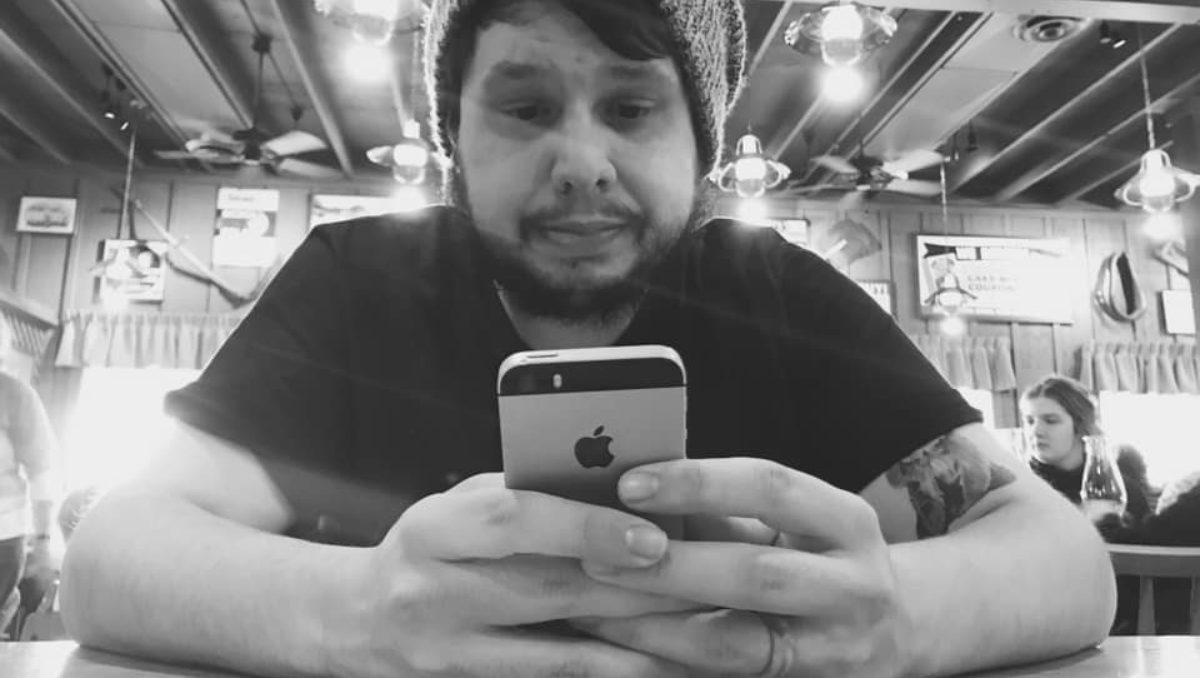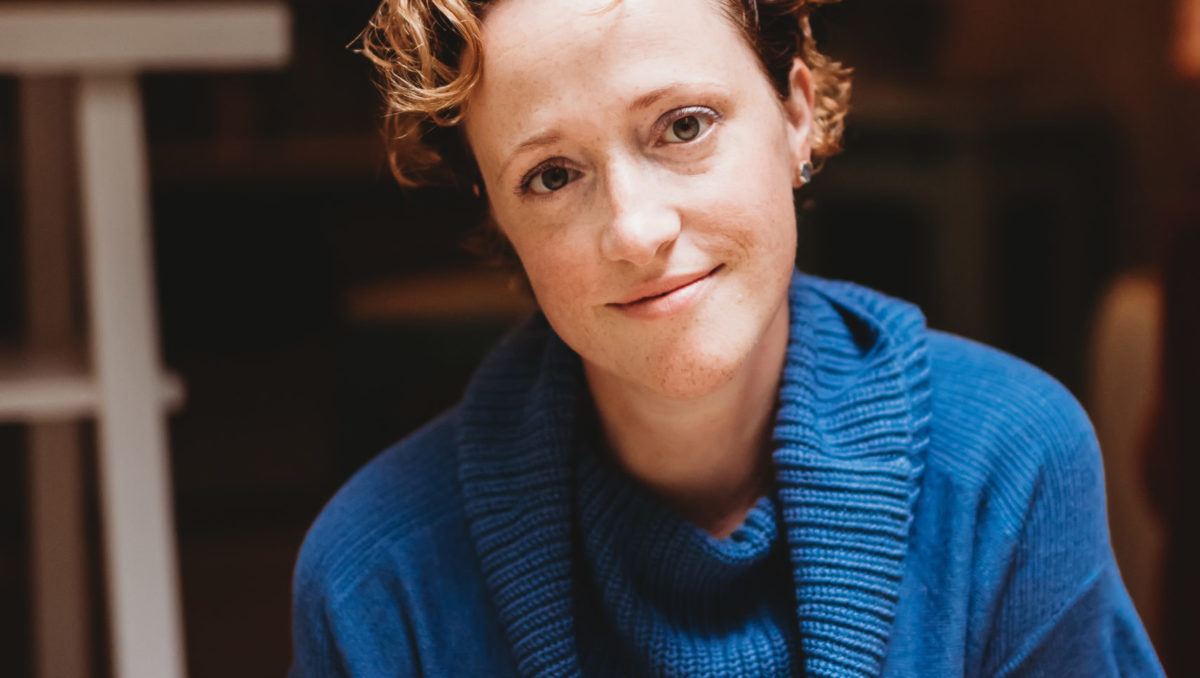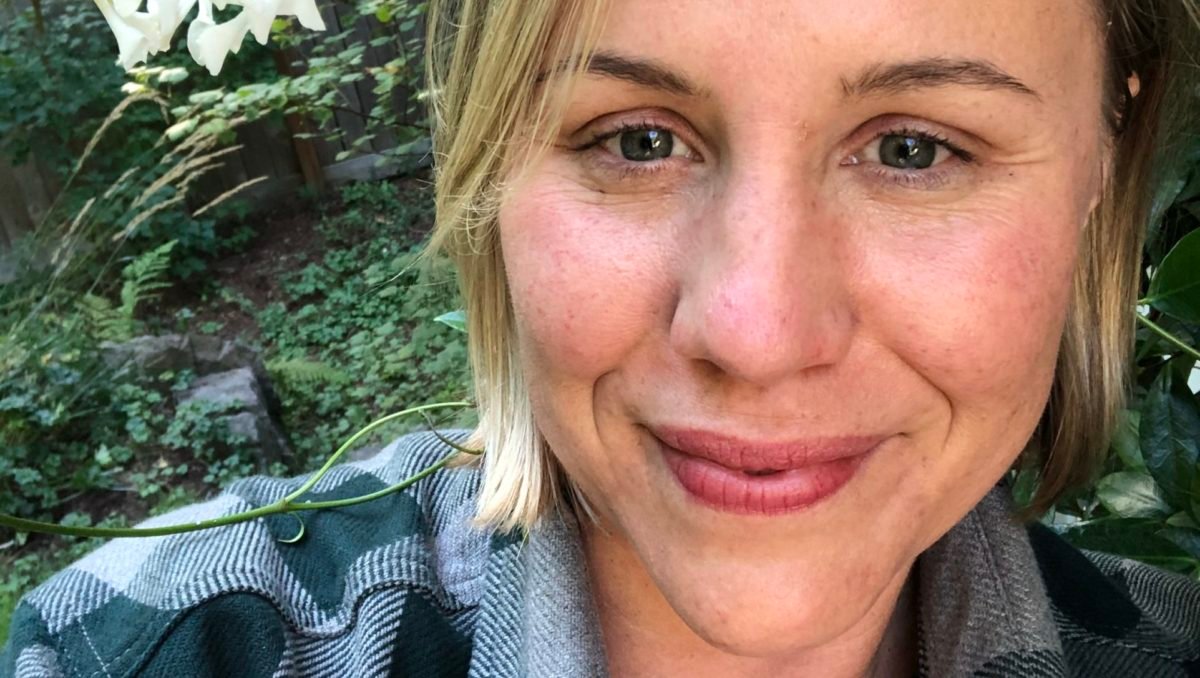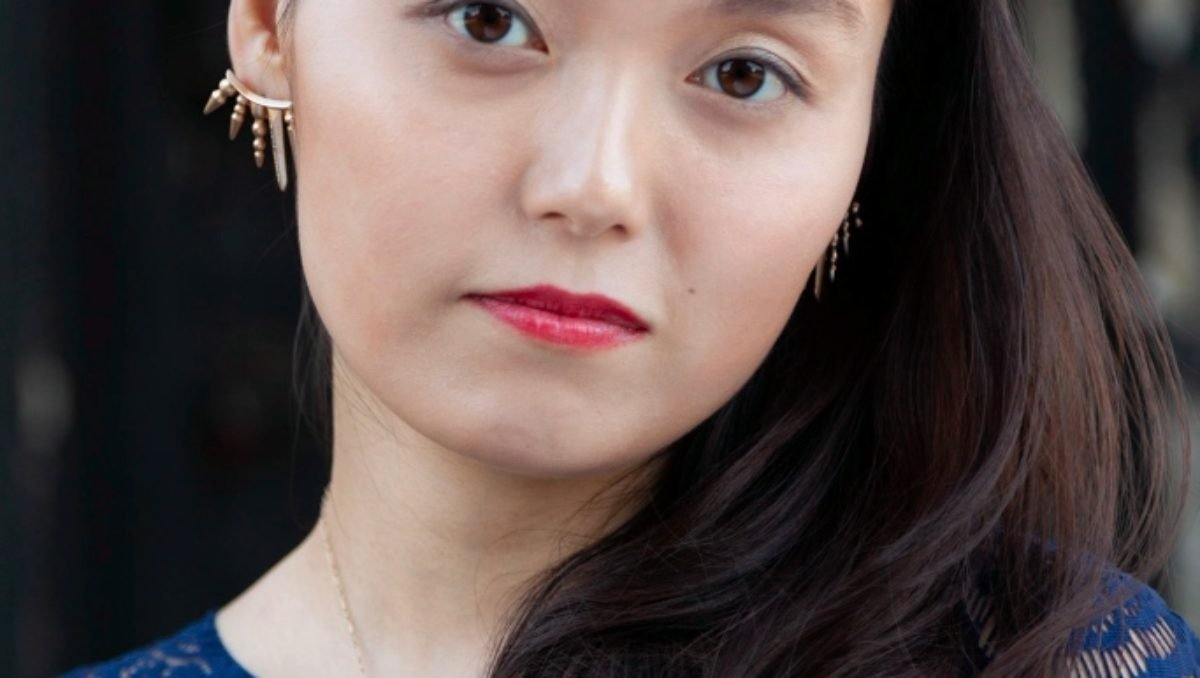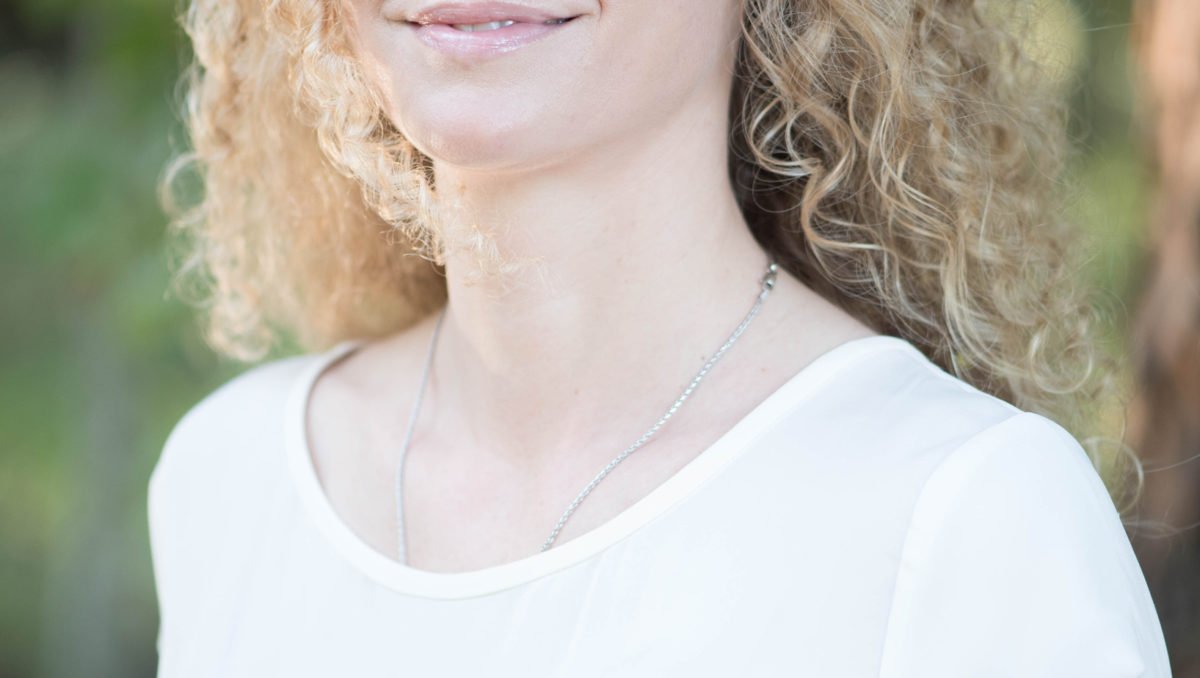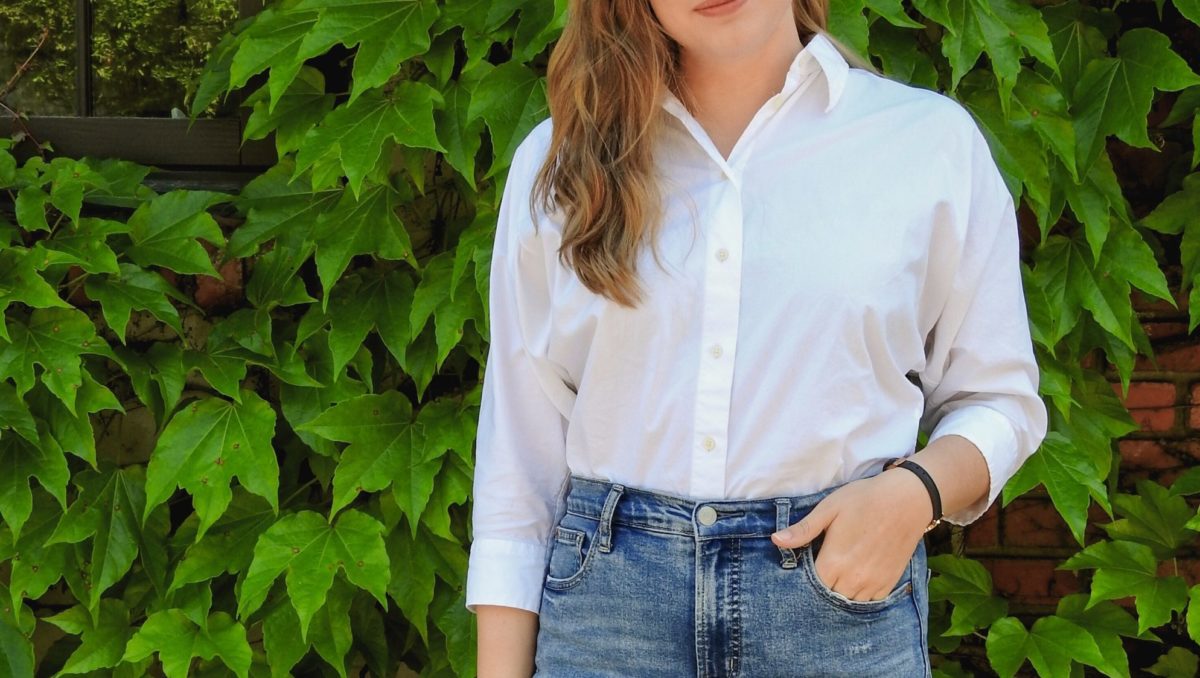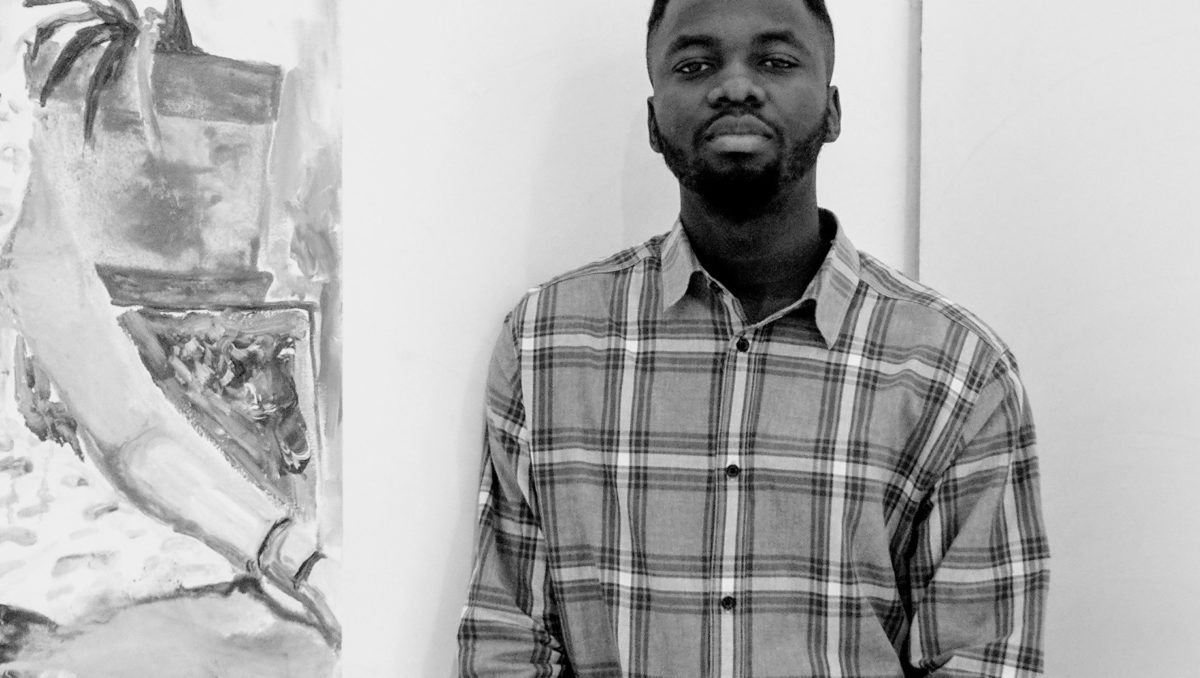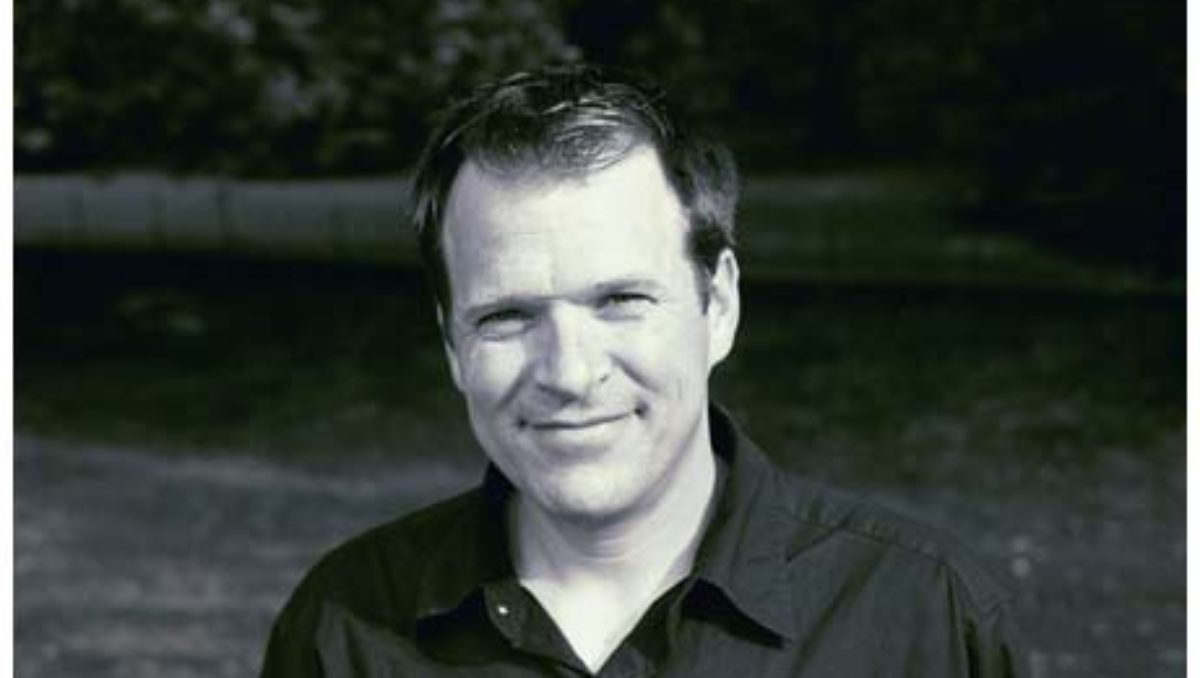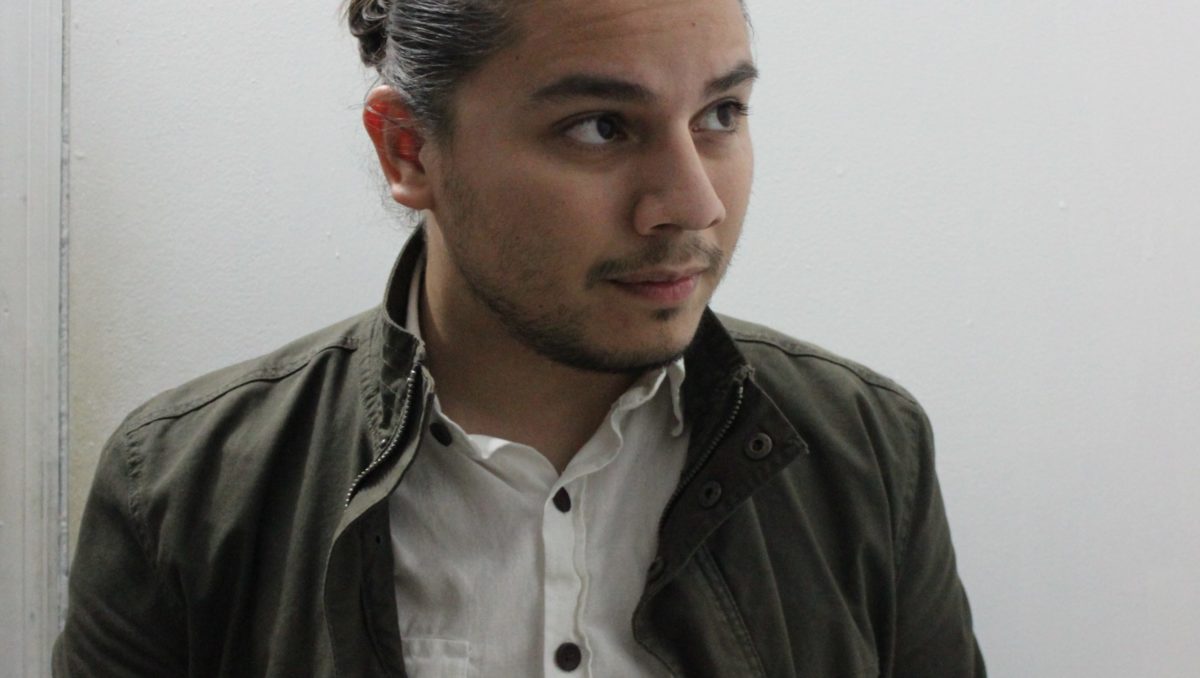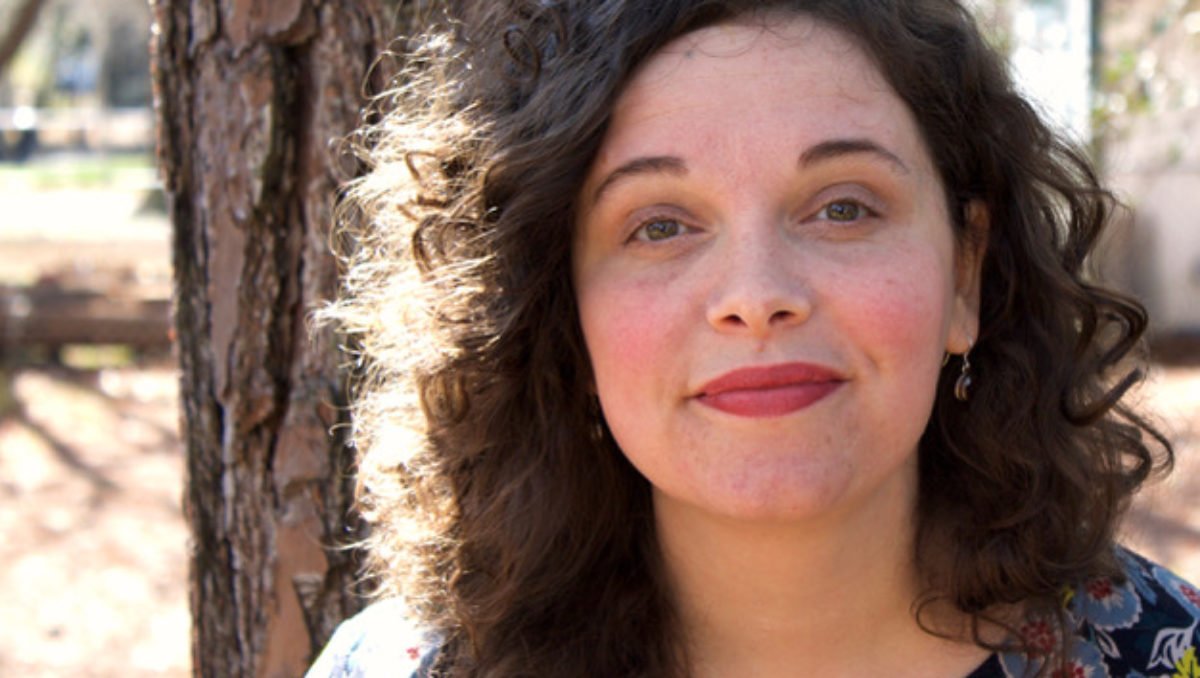SIX ECCLESIASTICAL LOVE SONGS by C. T. Salazar
heaven is a compound
word
the sun sunders
us dazzling
so you don’t have to
wonder what wound
I’m showing
:::
heaven-heavy
like
a cello’s hello—
/ heaven-heavy
like an animal fond of its own
fur.
:::
A cello’s hollow
that’s what it felt like
breathing with you
in the dark
:::
heaven is a compound
but not the one we’re in
we were called heathens in another myth
hello whatever wound we answer to now
:::
the language of electricity was
the language of prophets
a conduit for the power to pass through
I’m all steeple at your lightning
let us tremble cellos
at your touch
:::
the river knowing which way to go
without any godspeed to spill
heaven: clouds marigolding softly
:::
birds drones butterflies a jug
of water anything
could get over that fence
- Published in Issue 19, Uncategorized
TWO POEMS by Keetje Kuipers
IN THE OUTDOOR SHOWER WITH MY PREGNANT WIFE
The old frisbee from Burger Chef, once red
but faded now the pale pink of my wife’s
widening aureoles, lies upturned
beneath the saltwater drip of our sagging
beach towels. This world is full of objects
succumbing to the gentle ebb of decay. But her body—
loosening breasts and blue-veined thighs caught
in a cascade of wet light as she turns
beneath the showerhead’s senseless spray—
is not one of them. That low-blooming
shudder and heft at her hips can’t compare
to her belly button’s skin stretched taut
and thin, become the pale sail of a boat
screaming into harbor. I am here
to praise the way in which everything
I have ever loved about her body
is about to be ruined forever in the breaking
open. Tonight the wind will come up,
turn the towels on the line into fat bells,
churn the waves into a froth, drag the sand
out and leave it where our toes can’t touch.
In the morning, the ocean will return
to its languid sheet, but the beach will be strewn
with the wreckage. I want already
the body scarred by stretch marks, the extra flap
of skin to hang soft at her waist, the feet
that will never again be quite so small.
I want to worship the body after the storm,
the one I’m imagining already
as she unfolds the straps from her shoulders
and peels the suit off, her skin covered in
those minute and glittering fragments of shell
some people insist on calling sand.
WITH GARBO IN PALM SPRINGS
We’re at the resort, the one with the forty-one
pools, and it’s night so if we were up in the swaying
fronds of a palm tree the ground would stretch before us
a green freckled thigh against a dark sheet. But Greta
and I are inside, perched on the edge of the bed
watching my wife sleep. She’s beautiful, we agree,
and my daughter, too, their blond hair spread against
the pillow like a silk scarf in a silent movie.
Though now Greta’s impatient with all the watching,
the kid especially, so we go outside to smoke
her cigarettes, to lean our backs against the white
adobe walls and kiss for as long as it takes.
The electronic lock clicks behind us, a set
of perfect teeth, and I’m chasing Greta across
the lawn with its lemon trees I can smell in the dark,
past the lounge chair where someone’s abandoned
the sort of wide brimmed hat meant to keep us young,
over the patio still warm as skin from the sun’s
relentless shining, toward the place where she’s already
slipped off her dress and climbed into the water,
side-stroking with one arm and holding her smoke
aloft with the other. And if I say it’s a dream,
it will have no power. And if I say it’s real,
no one will ever believe me. But can’t it
be both? I want to rub my body against her
perfect one. So I do. All my nubbly parts sanded
down against the smooth monument of her form,
ageless as the desert once was before we came here
and turned it into a golf course. Now only
my hunger—its vast, unquenchable fury—
interrupts the glow of each long leg as she traces
eggbeater circles in the blue depths beneath her.
- Published in Issue 19, Uncategorized
ART by Suzanne Koett
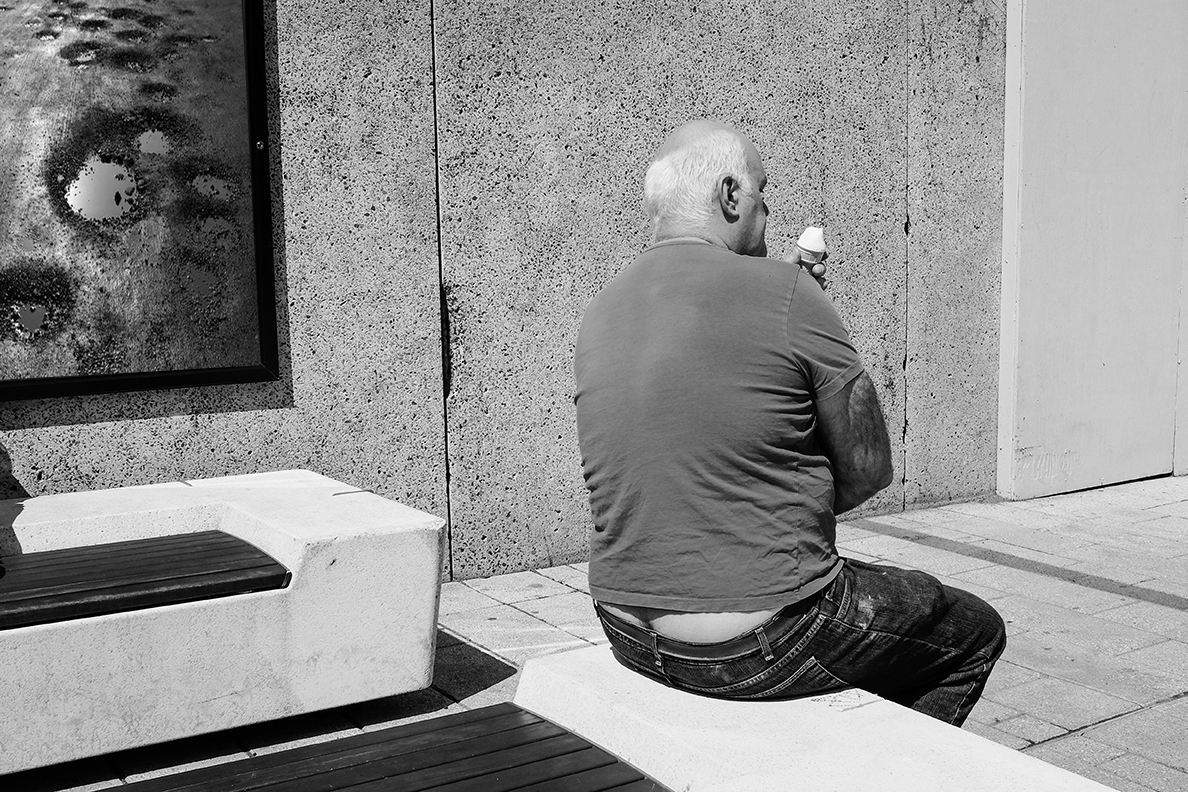
“Cone and Potholes,” archival inkjet print, 11″ x 17″, 2017 by Suzanne Koett
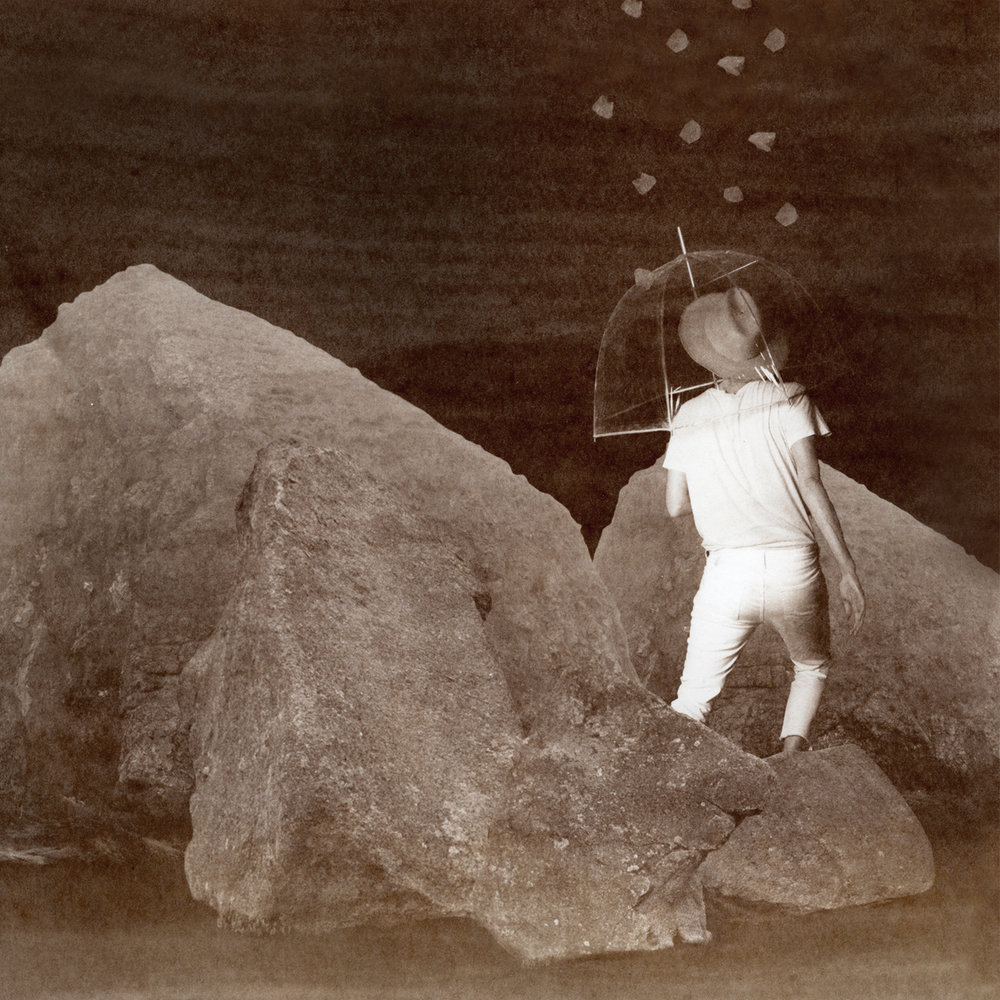
“Track 3: The First Season,” digital, collage & Vandyke brown print on archival watercolor paper, 8″ x 8″, 2018 by Suzanne Koett

“Fox,” Archival Inkjet Print, 11″ x 17″, 2018 by Suzanne Koett

“Powerlessness,” Archival Inkjet Photograph, 20″ x 30″, 2014 by Suzanne Koett
- Published in Issue 19, Uncategorized
TWO POEMS by Jessica Johnson
UPDATE
The boy builds a four-throated fish
out of cardboard. The fish lips
flap, blue-taped, from a body that
carried bottles. See! He says
a large-mouth bass. I’d have smiled once
(inwardly of course) at his fine
imaginary, thought him unspoiled, amusing himself
with the trash.
Wasn’t I doing a good
job? The boy, a living sign that I could refuse
the invisible purveyors who would sell him
dopamine hits & strangling masculinity with a side
of fried sugar? The things we buy
without knowing. But this is a cool
summer, air and skin the same, enough water
the rose taller, the jasmine tendrils
longer. The soft white sky.
I ought to love it. There’s no war now
except the usual one
& death like age is just a number
that rises. I walk every morning
& the number rises. We finish our assignments
& the number rises. We reply to your message
& the number rises. We build a fire no one
may gather around. What can you swallow
with four throats
that you couldn’t swallow with one?
The same things, but smaller.
BAD INSURANCE
One trimmed off his own name
to hide his Irishness.
One wrote white
instead of mother’s mother was
instead of no
right designation. One dressed
like a shark, smooth suited, pressed
& pale to compensate
for parents who grew
in foreign soil
on preserved fish & sometimes stank of it.
My people were damned
successful at leaving themselves behind
rushing toward a shrinking
field of safety just inside the blade
of cooling sunlight even
as night came on.
And me, years ago when I had bad
insurance, I saw a doctor for a raft
of pains, a strange doctor
but official. She said the way I move’s all
wrong: from the edge not the center
as if I could just decide a thing & make it so
without getting too close without risking parts (belly, heart)
I couldn’t lose.
She said my problems come
from a thumb too quick
to pin something under it.
- Published in Issue 19, Uncategorized
I USED TO PRAY by Yuxi Lin
to any God that made me
feel ashamed.
Girls are takers,
Mama used to say.
I took every lesson
she gave me, learned
to swim out of my body
& abandon it.
With incense I burned pages
until a perfect eye stared back.
God drilled a hole to make us see.
See? Mine is filthy.
He, too, eyed me
each day afterschool,
clutching the line to the lure.
When I walked by
he’d catch me & groan
Oh you’ve grown so heavy.
Like his breath, his fingers
were meaty & thick.
For years I weighed myself
then I weighed myself down.
In the water, my scaled body
lay bent & murky.
Listen — Don’t believe in God
unless he admits
he was always watching.
Look back at him.
If he had my courage
he’d choose to be born
a daughter.
What am I begging for?
I have two mouths.
One remembers.
Neither forgives.
- Published in Issue 19, Uncategorized
MEMORIAL DAY by Chelsea Dingman
Not the storm, but the calm.
Not the flurry of attention
called to the sky.
Not the rumour of a hurricane on the horizon.
Not humidity, the mosquitoes rising
like smoke from the fields.
Not a history of revisions we call
love, or survival.
Not the children lost and discarded.
Not the borders that hostage them.
Not how we were once possible
under this tyrant
sky, the familiar sorrow of the fields.
Describe our self-importance.
This awareness that travels us like a siren.
Why the live oaks drown in brown pollen
gripping the streets.
Who else will wash this mess clean?
Laundry-damp, our houses.
Thick with spoiled food and loneliness.
In times of love and crisis, we’ve been
the most alone.
Planes take off without us.
Children flit between namesakes like wasps.
We miss what is ours while it is within reach,
along with the dim sound of thunder
in the distance, storm drains already chuffing.
Let any absence mean we are loved.
Let the rain come soon, and be done with us.
- Published in Issue 19, Uncategorized
VENUS DE MILO WITH DRAWERS: SELF-PORTRAIT MADE OF MINK & PLASTER by Caroline Parkman Barr
Each morning is the same
but I can’t help but look again and again:
skin smooth peony petal, vanilla-ice-
cream-cool; hair a ripple of milk pulled back
too tight (though sometimes I forget the aching);
even my eyes are eggshells. Only air where arms
should be, dimpled seams of unfinished
making I’ll never forgive, but the sling
of this sheet hugs my hips in the perfect
place that says, Hey, I can still be sexy.
Then, there are the drawers: forehead,
breasts, ribcage, stomach, my left knee—
the edges to my curves only someone else
can open—nipples, belly button, each knob
a puff of fur to touch and pull. I’m told
they’re so, so soft. Everyone wants to look
inside, and sometimes I let them
just to feel the rub and jolt, just to see
their faces when they find my secrets,
find their own. My favorite part is when
they shut me, shaking my spine so hard
I almost crack—and for a moment it feels
some part of me could change.
- Published in Issue 19, Uncategorized
A POEM WHERE GOD IS A PARABLE by Jay Kophy
The absence of faith is the beginning of death.
What I call flesh is prayer bound to my bones.
All my prayers begin as songs from my bones
and end with blood instead of amen.
How I wish I began every request with amen,
like when I ask God to let doubt pass from me.
Amen. Oh God. let this sea of doubt pass from me,
for I’ve tried walking on water & almost drowned.
In Noah’s ark, a lost name is replaced with drowned.
In Ghana, anyone who drowns is without a name.
What is the value of a life without a name
to those who believe in what they can only see?
To those who believe in what they can only see,
the absence of faith is the beginning of death.
- Published in Issue 19, Uncategorized
IF YOU ARE READING THIS by James Hoch
We are building a house
small in the woods,
refuge from disquiet
or vague boredom.
It must weather distance,
the hurt of proximity.
We do not mean to,
though we are so good
at breaking, scavenging
old bone and feather, stalks of
wildflowers outlasting
the hour of their heads.
You are boss, and look boss,
hammer and spackle knife
and blue hair, plastering.
At a window you like the way
open sounds, so you mouth it
until the word too becomes
some thing to occupy.
You can’t take it with you,
and the house won’t stay
when you’re gone.
Wind is saying this,
the way wind likes to say things,
likes the door swinging,
petals over the floor,
then floor, then house,
then whatever was before.
- Published in Issue 19, Uncategorized
BALIKBAYAN FILLED WITH THEORY by Dujie Tahat
- Published in Issue 19, Uncategorized
TWO POEMS by Ariel Francisco
DREAMING OF THE GOVERNOR AND THE MAYOR PLUNGING INTO THE RIVER
Perhaps conjoined at the ankle
by a concrete block, like the tails
of Pisces. Yes, let them embrace
the East River together in early
morning so they may be blessed
at last by the light of a new day
rising beautifully without them.
MY DAD’S BIRTHDAY IS WRONG ON HIS BIRTH CERTIFICATE BECAUSE HIS PARENTS COULDN’T AFFORD TO PAY FOR IT WHEN HE WAS BORN
Officially my dad was born
June 3rd, 1957— that’s what all
of his documents, signed and notarized
claim in both countries that claim him—
though unofficially, hearsay,
there’s no proof that he entered the world
on April 11th, 1957: photos can be
doctored and both parents dead,
only the scowl on his face when it’s
brought up can serve as testament
to those fifty-four unaccounted days.
There is being born into poverty
and then there is not being born
because of poverty. One must pay
to come into existence and my dad’s
existence was delayed two months
because his parents could not.
There is something unforgivable
about being denied time, about
being made to feel as though you need
to catch up to yourself, make up
what’s been lost— no, what’s been taken.
Despite all the evidence to the contrary
I do not like dwelling on the past,
especially one inherited so heavily
and without consent; but I can’t help
but think of how being a dollar short
seems to be a family trait, of how
my grandparents split, fell apart
like dead trees in a storm, of how
my dad grew up to meet my mom
and repeat that cycle, unintentionally,
but intentions don’t matter when you’re left
indebted to the wreckage—
of how things could have been different
of how things could have been different.
- Published in Issue 19, Uncategorized
TWO POEMS by Melissa Crowe
SOBRIETY SONNET
with apologies to my brother, 11 months clean
The boy who cried sunlight, summer rain,
bird-in-the-bush, in the hand, who cried
fiddleheads, brook trout, berries in the field
by the chicken house, again and again
who cried lilacs, from each bloom
a hit of nectar and nothing to fear—
he’d pretended for so long the all clear
while something hungry paced the room
that even when of true wolflessness
he made a bouquet so pretty and perfumed
nobody in her right mind could presume
it wasn’t flowers, I called it beast,
saw in the gold-dusted mouth of each bud
a dogtooth sharp enough to draw blood.
EPITHALAMIUM WITH PAPER BELL
I was there on the day my mother married—
I’ve seen photographs of her in her borrowed
dress, bodice of a taller friend wrinkled
at her waist, slack satin pooling at her feet.
Her forehead shines above a startled smile,
and my sudden stepfather, in a rented tux
of powder blue, just looks glad. There I am,
too, tucked between them on my final day
of being five years old. I don’t remember
the ceremony or the reception, the kind I’d
later love when my mother’s younger brothers
wed their first or second wives at the Elks club
or the VFW, center of the room cleared
for a dance floor, tables pushed to the walls
and spread with crockpots of cabbage rolls,
spam salad spooned into hotdog buns.
Beer bottles and ashtrays. Uncles with their
sleeves rolled up, Red Wings buffed of mud.
When they weren’t twirling girlfriends
with spaghetti straps and long-long hair,
pulling them close for the slow tunes,
they lifted me into their arms so I could hug
their whiskered necks. There’d have been
a deejay and gallons of milk mixed with Kahlua,
a dollar dance, man after man paying to twirl
my mother a little, money for the honeymoon,
one night in a cabin at Portage Lake then back
to the shoe factory. But I only remember
the paper bell I found taped to a table that night,
miracle the way I could close its feathers so
easily, conceal the whole voluminous thing
between two half-bells of card, then open it
as swiftly as lungs can fill with breath.
Like hands that part to reveal what I’d
wished for bent at the bedside, what I’d seen
in my head and whispered into the dark.
I could almost have believed I heard it ringing,
that tissue bell, marvelous flat nothing
come to song. I kept it a long time, precious—
and then I guess I lost it. I guess we all did.
- Published in Issue 19, Uncategorized
- 1
- 2
